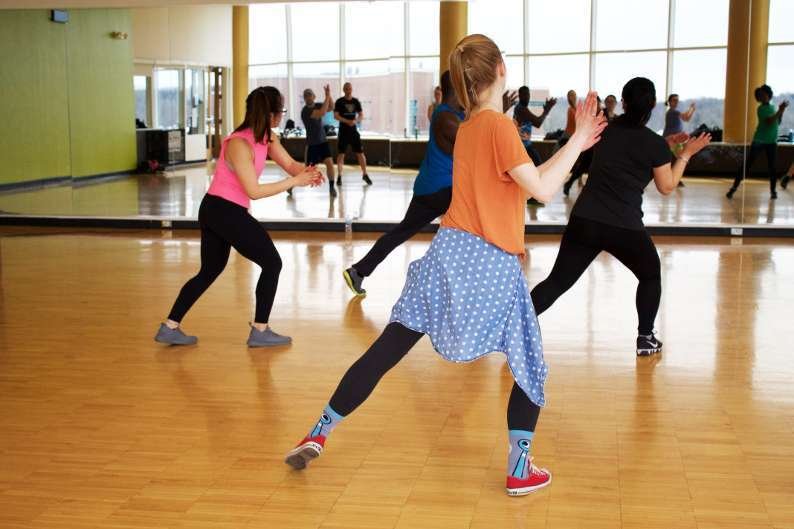There are many reasons why exercising is good for you. Regular physical activity can help to improve your heart health, increase your lifespan, and boost your overall mood and energy levels.
Additionally, exercise can help you maintain a healthy weight, reduce your risk of chronic diseases, and improve your cognitive function.
In short, there are many benefits to being physically active. And while it may seem like a lot of work to get started, even moderate amounts of exercise can make a big difference in your overall health. So if you’re looking for a good reason to get started, remember that the benefits of exercise are well worth the effort.
Why is it Good to Exercise?
The scientific benefits of exercise are well-documented, and there is no doubt that it is good for your health. However, many people struggle to make exercise a part of their daily lives.
There are a number of reasons why this may be the case, including a lack of time, motivation, or resources. Whatever the reason, it is important to find ways to overcome these obstacles and make exercise a part of your life.
There are many different ways to get started with exercise, and it does not have to be time-consuming or expensive. Taking a brisk walk around the block or doing some simple exercises at home are both great ways to get started.
Once you start to see the benefits of exercise, such as improved energy levels and better overall health, you will be more motivated to make it a part of your daily routine. The following 7 benefits of exercise thoroughly explain why it is good to exercise at any age or fitness level.
Boost Your Mood
There is a lot of research that suggests exercise can improve your mood. Exercise releases endorphins, which have mood-boosting effects.

The positive effects of regular exercise on your mood:
The benefits of exercise on mental health are enormous. For starters, it’s known that exercise can help to reduce stress and anxiety levels. It can also give you a sense of accomplishment and boost your self-esteem. All of these factors can contribute to an improved mood. Additionally, exercise can help to improve sleep quality, which can also impact your mood. So, if you’re looking for ways to improve your mood, consider adding some regular exercise to your routine.
Maintain the Best Health and Fitness
With exercise as a regular component of your lifestyle, you have the best chance of living a disease-free life and enjoying life in the best health possible.
The positive effects of exercise on the effects of exercise on the body systems:
Yes, exercise can help to prevent and control disease. Numerous studies have shown that one of the long term benefits of exercise and regular physical activity is that it boosts the body’s immune response. That means exercise helps to ward off infections from illnesses like the flu, colds, and bronchitis. Furthermore, studies have shown that people who are physically fit tend to show fewer symptoms and recover from illness more quickly than those who are not regularly active.
In addition to these benefits, engaging in physical activity may also help to prevent chronic diseases like heart disease, type 2 diabetes, obesity, and certain cancers. Thus, it is clear that exercise plays a crucial role in our overall health and wellbeing. If you want to stay healthy and prevent disease, be sure to get out there and move!
Increased Energy Levels
Regular exercise has a stimulating effect on the body and can prevent fatigue while increasing energy levels.

The positive effects of exercise on your energy levels:
When you engage in physical activity, your body spends energy in the form of calories. For this reason, people believe that exercising reduces energy levels.
However, regular exercise is shown to have just the opposite effect: it raises energy levels by improving cardiorespiratory fitness. In fact, aerobic exercises such as jogging or swimming are known to increase the effects of neurotransmitters like norepinephrine and serotonin that affect mood and energy level.
In addition to boosting your overall energy level, regular exercise also helps to improve sleep quality by making it easier for you to fall asleep and stay asleep longer at night. This is because physical activity causes an increase in body temperature, which then decreases during sleep, which helps you feel more tired when it’s time for bed.
Weight Loss and Weight Management Made Easier
Weight loss depends on burning more calories than you consume. You can accomplish this calorie deficit by severely cutting calories.
Adding exercise to your diet plan has these positive benefits:
One of the most common questions asked by people trying to lose weight is whether or not exercise can help. The answer, unfortunately, is not a simple yes or no. Exercise can certainly help with weight loss in several ways. It can boost metabolism, increase the amount of calories burned at rest, and reduce appetite.
However, it is important to keep in mind that these effects are relatively small. In order to see significant results, exercise must be combined with other weight loss strategies such as diet and calorie restriction.
Additionally, some people may find that they actually gain weight when they first start exercising, due to increased muscle mass. However, this initial weight gain is usually temporary and will eventually lead to weight loss as long as exercise is continued. In conclusion, exercise can be a helpful tool for weight loss, but it should not be relied on as the sole method of achieving results.
Improved Sleep
Enough sleep is critical your life and health.
Sleep deprivation can cause high blood pressure, diabetes, heart attack, heart failure, and stroke. These are some of the most serious problems that can happen when you don’t get enough sleep. There could be side effects like obesity, depression, a weak immune system, and no desire to have sex.
Here’s what exercise can do for your sleep:
When you exercise, you feel exhausted and need to rest. And when you are tired, your body is more likely to fall asleep faster and deeper. In fact, studies have shown that a good workout can improve the quality of your sleep. A deeper sleep means you get better muscle recovery during the night while blending into your morning routine.
It’s important to note that the timing of your workouts is also critical. If you choose to exercise right before bedtime, it may take longer for you to fall asleep because it may take some time for your body temperature to regulate after exercising. Therefore, you should try to work out at least 2 hours before bedtime if possible.
Better Heart and Lung Health
There is no doubt that regular exercise is good for your overall health, but does it specifically benefit your heart and lungs? The answer is a resounding yes. Exercise helps to keep your heart and lungs healthy by:
In addition, exercise helps to strengthen the muscles that support your respiratory system, making it easier for you to breathe. While exercising, your heart rate and breathing rate increase in order to supply your body with extra oxygen. The more you work out, the more efficient your lungs and heart become at delivering oxygen to your muscles and other organs.
All of these benefits add up to a healthier heart and lungs, which can lead to a longer, healthier life. So if you’re looking for a way to improve your cardiovascular health, start moving more and get some exercise. Your heart and lungs will thank you.
More Confidence and Self-Esteem
When it comes to raising your confidence and self-esteem, there is no better way than exercise. Regular exercise has a number of benefits for overall health, including increased energy levels, improved physical fitness, and reduced stress.
When you’re in good shape and have plenty of energy, you’ll feel better about yourself. Maintaining an active lifestyle and feeling strong provides a sense of accomplishment, which leads to higher self-esteem and confidence in yourself.
When you exercise, you feel better about yourself, look better and have more energy. You can do more with your family and friends and live a healthier lifestyle with your children.
But it also promotes mental health by boosting moods and reducing feelings of negativity. One of the ways exercise accomplishes this is by increasing endorphins, which are hormones that improve mood and can combat feelings of anxiety or stress.
How To Get More Exercise?
In order to achieve optimal health and well-being, it is important that we incorporate exercise into our everyday lives. This can be easier said than done, however, especially if you are struggling with a busy schedule or find it difficult to find the motivation to get moving.
Luckily, there are several techniques and all types of exercise that you can use to make exercise a consistent and permanent part of your lifestyle.
One strategy is to be intentional about the way that you plan your days. If you always find yourself running out of time at the end of the week, then consider blocking off some specific slots on your calendar as “exercise time.” This could consist of anything from going for a jog or bike ride to attending a fitness class or taking a yoga or dance class.
Additionally, try setting goals for yourself so that you have something concrete to work towards each day. Whether it’s working up to running a certain distance in the park, doing pushups, or mowing the lawn, just get going.
Goals will help to keep you focused and motivated as you make exercising an integral part of your daily routine. By staying intentional about your approach and setting clear goals along the way, you can make health and fitness a natural and lasting part of your lifestyle.
Summary
People should exercise because it is good for them physically and mentally.
Here are some top benefits of regular exercise when it comes to your physical health:
Exercising is also good for your mental health because:
Exercise should be a part of your life, and with some planning and effort, it can be easy to make it happen.
